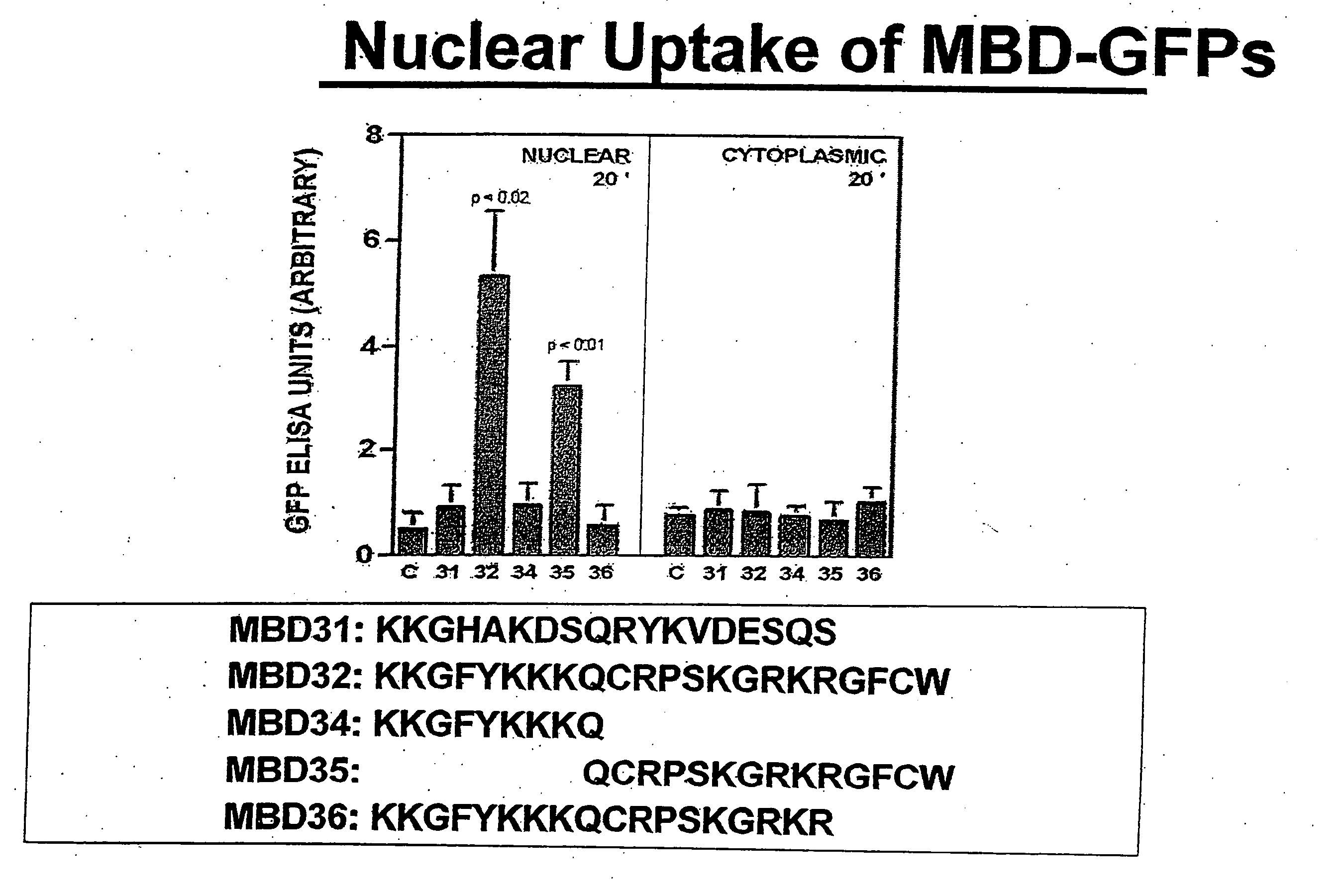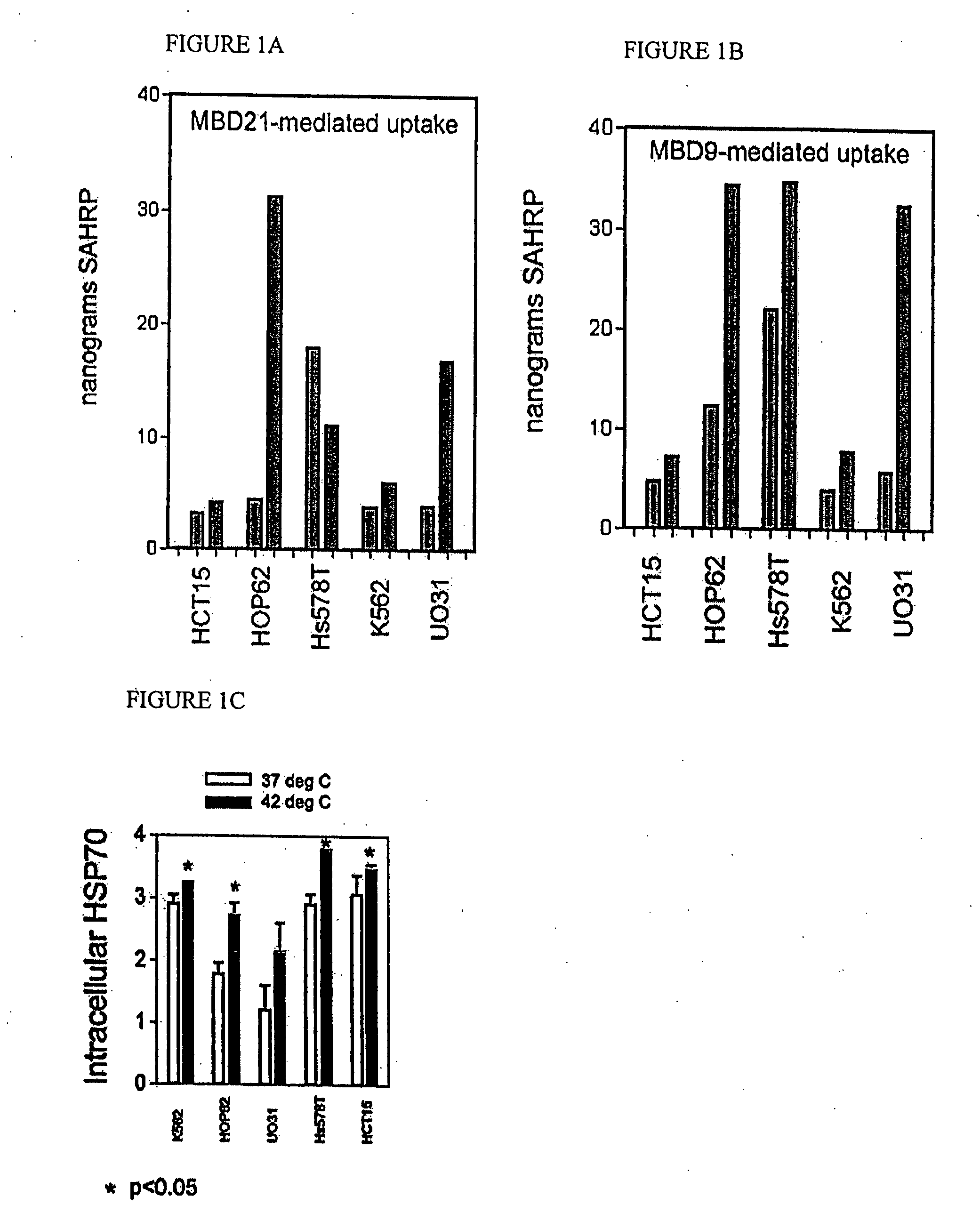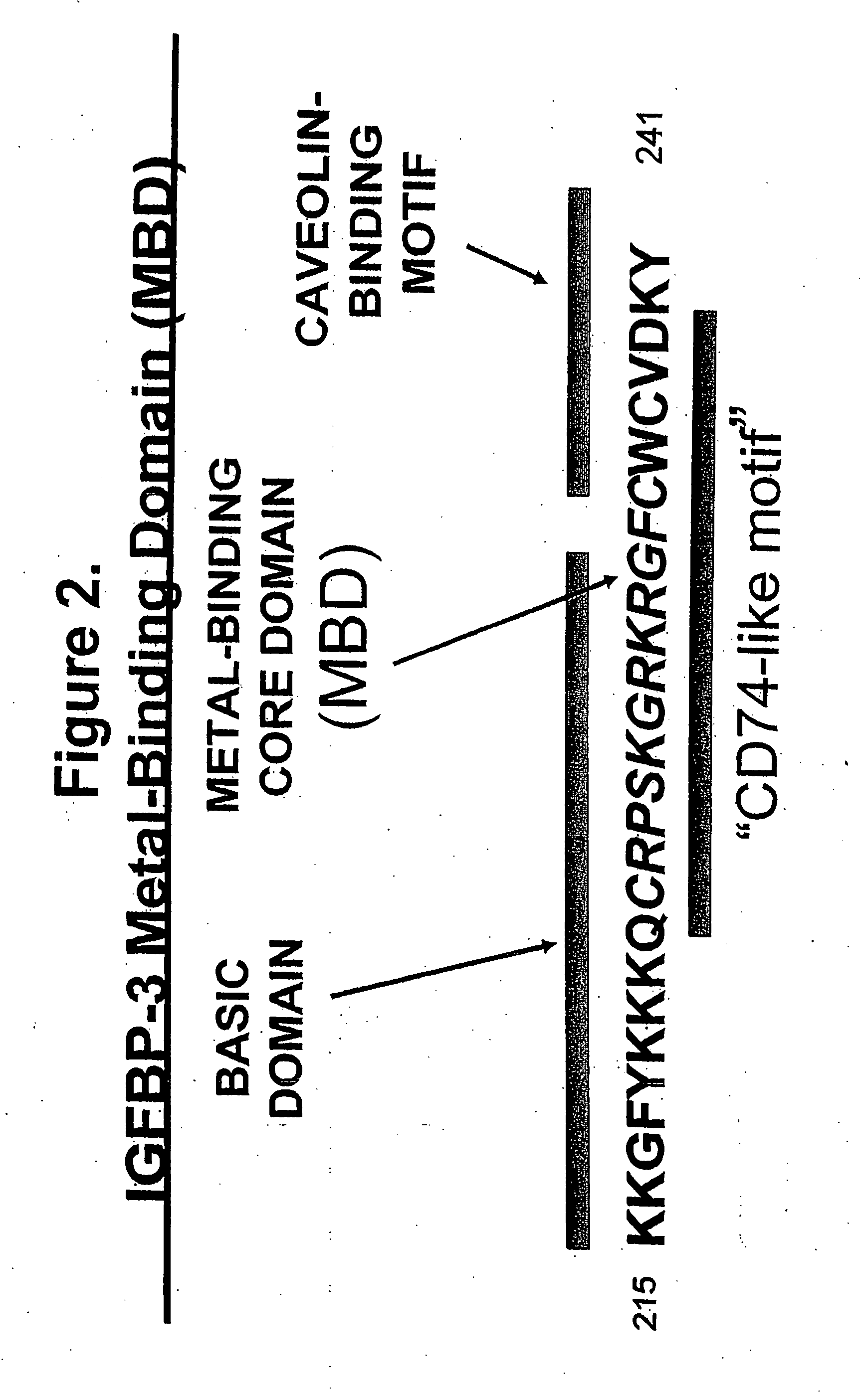Metal-binding therapeutic peptides
a technology of metal-binding peptides and therapeutic peptides, which is applied in the field of medical diagnostics and therapeutics, can solve the problems of limited efficacy, reduced patient's quality of life, and almost invariable failure of treatment in time, so as to improve the quality of life of patients, inhibit stress-coping and anti-apoptotic mechanisms, and enhance existing chemotherapeutic cocktails.
- Summary
- Abstract
- Description
- Claims
- Application Information
AI Technical Summary
Benefits of technology
Problems solved by technology
Method used
Image
Examples
example 1
[0173] HEK293 kidney cell line and 54 tumor cell lines obtained from the National Cancer Institute and passaged in RPMI1640 cell culture medium supplemented with 10% fetal bovine serum and 10 uM FeCl2. Uptake of streptavidin-horseradish peroxidase (SA-HRP) conjugate and of various SA-HRP::MBD peptide complexes was determined as described (Singh et al. J Biol Chem. 279 (1):477-87 [2004]) using biotinylated
MBD9(KKGFYKKKQCRPSKGRKRGFCWNGRK)(SEQ ID NO: 10)andMBD21(KKGFYKKKQCRPSKGRKRGFCWAVDKYG)(SEQ ID NO: 4)peptides and SA-HRP.
[0174] Nuclear and cytoplasmic localization of these proteins was also determined in each case. The results of this survey are summarized in Table 2. They show that the rate of MBD-mediated uptake is highly variable across cell lines. In order to establish the underlying molecular mechanism for this variability, we cross-linked MBD21 peptide to the following cell surface markers at 4 degrees Celsius as previously described (Singh et al. J Biol Chem. 279 (1):477-87...
example 2
[0175] Seven matched pairs of tumor cell lines (one MBD high-uptake and one MBD low-uptake line for each tissue) were selected for further study. Of these, six pairs (all except the leukemia lines) were selected for gene array analysis.
TABLE 3TISSUEHIGH-UPTAKELOW-UPTAKEProstatePC-3DU-145ColonHT-29HCT-15LungNCI-H23HOP-62KidneyA498UO-31OvaryOVCAR-8OVCAR-5BreastMCF-7HS-578TLeukemiaCCRF-CEMK562
[0176] Total RNA was isolated using standard RNA purification protocols (Nucleospin RNA II). The RNA was quantified by photometrical measurement and the integrity checked by the Bioanalyzer 2100 system (Agilent Technologies, Palo Alto, Calif.). Based on electropherogram profiles, the peak areas of 28S and 18S RNA were determined and the ratio of 28S / 18S was calculated. In all samples this value was greater than 1.5, indicating qualitative integrity of the RNAs. 1 μg total RNA was used for linear amplification (PIQOR™ Instruction Manual). Amplified RNA (aRNAs) were subsequently checked with the B...
example 3
[0180] Low-uptake lines HCT-15, HOP-62, Hs578T, K562 and UO31 were heat-shocked at 42 degrees for 1 hour. HSP70 was induced by this treatment (FIG. 1C). Uptake of MBD-tagged peroxidase was measured in extracts from these cells (red bars, right) and from control cells at 37 degrees. Significantly higher uptake was seen in all cell lines upon heat shock, and this uptake was not due to increased permeability of cells as SAHRP control sample uptake was undetectable in all cases. Cells were grown in RPMI 1640 media+10% FBS+10 μm ferrous chloride until 85-90% confluency. They were trypsinized and removed from the plates. Cells were resuspended in the same media in 15 ml tubes and incubated at 42 degrees Celsius for one hour. There was a set of controls at 37 degrees Celsius for each cell line. Then 10 ul of each peptide complex was added to each tube (in duplicate) and incubated at 37 degrees Celsius for 20 minutes. After 20 minutes, the media was removed from the plates and the cells wer...
PUM
| Property | Measurement | Unit |
|---|---|---|
| Fraction | aaaaa | aaaaa |
| Molar density | aaaaa | aaaaa |
| Frequency | aaaaa | aaaaa |
Abstract
Description
Claims
Application Information
 Login to View More
Login to View More - R&D
- Intellectual Property
- Life Sciences
- Materials
- Tech Scout
- Unparalleled Data Quality
- Higher Quality Content
- 60% Fewer Hallucinations
Browse by: Latest US Patents, China's latest patents, Technical Efficacy Thesaurus, Application Domain, Technology Topic, Popular Technical Reports.
© 2025 PatSnap. All rights reserved.Legal|Privacy policy|Modern Slavery Act Transparency Statement|Sitemap|About US| Contact US: help@patsnap.com



